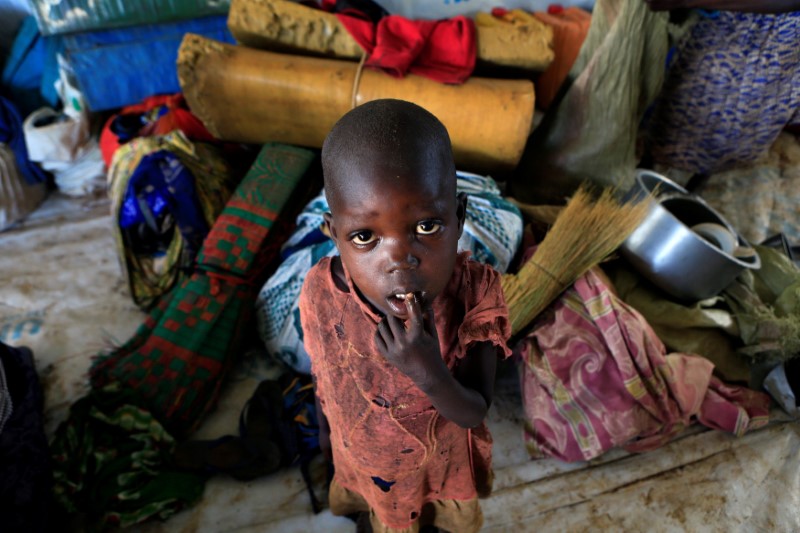
By Thomas Mukoya
SOLAI, Kenya (Reuters) – A dam on a commercial flower farm in Kenya’s Rift Valley burst after weeks of torrential rain, unleashing a “sea of water” that careered down a hillside and smashed into two villages, killing at least 47 people.
The walls of the reservoir, on top of a hill in Nakuru county, 190 km (120 miles) northwest of Nairobi, gave way late on Wednesday as nearby residents were sitting down to evening meals.
Kenya is one of the largest suppliers of cut flowers to Europe, and roses from the 3,500-acre Solai farm are exported to the Netherlands and Germany, according to Optimal Connection, its Netherlands-based handling agent.
The floodwaters carved out a dark brown chasm in the hillside and swept away everything in their path – powerlines, homes and buildings, including a primary school.
The bodies of two women were found several kilometers away as excavators and rescue workers armed with shovels picked through rubble and mud searching for survivors and victims.
Local police chief Japheth Kioko said the death toll could climb. “So far it is 47 dead. We are still on the ground,” he told Reuters.
After a severe drought last year, East Africa has been hit by two months of heavy rain, affecting nearly a million people in Kenya, Somalia, Ethiopia and Uganda. Bridges have been swept away and roads turned into rivers of mud.
In Solai, Veronica Wanjiku Ngigi, 67, said she was at home brewing tea with her son at around 8 pm (1700 GMT) when his wife rushed in to say the dam had burst and they needed to get to higher ground immediately.
“It was a sea of water. My neighbor was killed when the water smashed through the wall of his house. He was blind so he could not run. They found his body in the morning,” she said. “My other neighbors also died. All our houses have been ruined.”
BOULDERS, ROOTS
Nakuru lies in the heart of Kenya’s fertile Rift Valley, home to thousands of commercial farms that grow everything from French beans to macadamia nuts to cut flowers, nearly all of which are exported to Europe.
The region is dotted with irrigation reservoirs built in the last two decades to meet the demands of the rapidly expanding agricultural sector, the biggest foreign exchange earner for East Africa’s largest economy and a major source of jobs.
Vinoj Kumar, general manager of the Solai farm, blamed the disaster on massive rainfall in a forest above the dam.
“In the past two days the intensity of the rain was high and the water started coming down carrying boulders and roots which damaged the wall,” he told Reuters. “The dam wall cracked and the water escaped.”
Nakuru governor Lee Kinyanjui said 450 homes had been hit by the floodwaters and safety engineers had been sent to inspect three other dams to check for cracks or breaches.
Wanjiku, the survivor, said at least one looked like it was ready to burst. “There is another dam which is also overflowing which is looking risky,” she said. “We are scared.”
One primary school had been closed as a precaution, education officials said. Arriving at the scene, Interior Minister Fred Matiangi pledged central government assistance to those affected.
To date, heavy rains have caused havoc in Kenya, killing 158 people and displacing 299,859, according to the government and Kenya Red Cross. Roads and bridges have been destroyed, causing millions of dollars of damage.
The United Nations UNOCHA disaster agency said 580,000 people had been affected by torrential rain and flooding in neighboring Somalia, while the Somali region of eastern Ethiopia had also taken a hammering, with 160,000 people affected.
The flooding could yet get worse, with heavy rains forecast to continue in the Rift Valley and the Lake Victoria basin over the next few weeks.
(Reporting by Thomas Mukoya, George Obulutsa, Duncan Miriri, Humphrey Malalo and Maggie Fick; Writing by Ed Cropley; Editing by Andrew Heavens)










